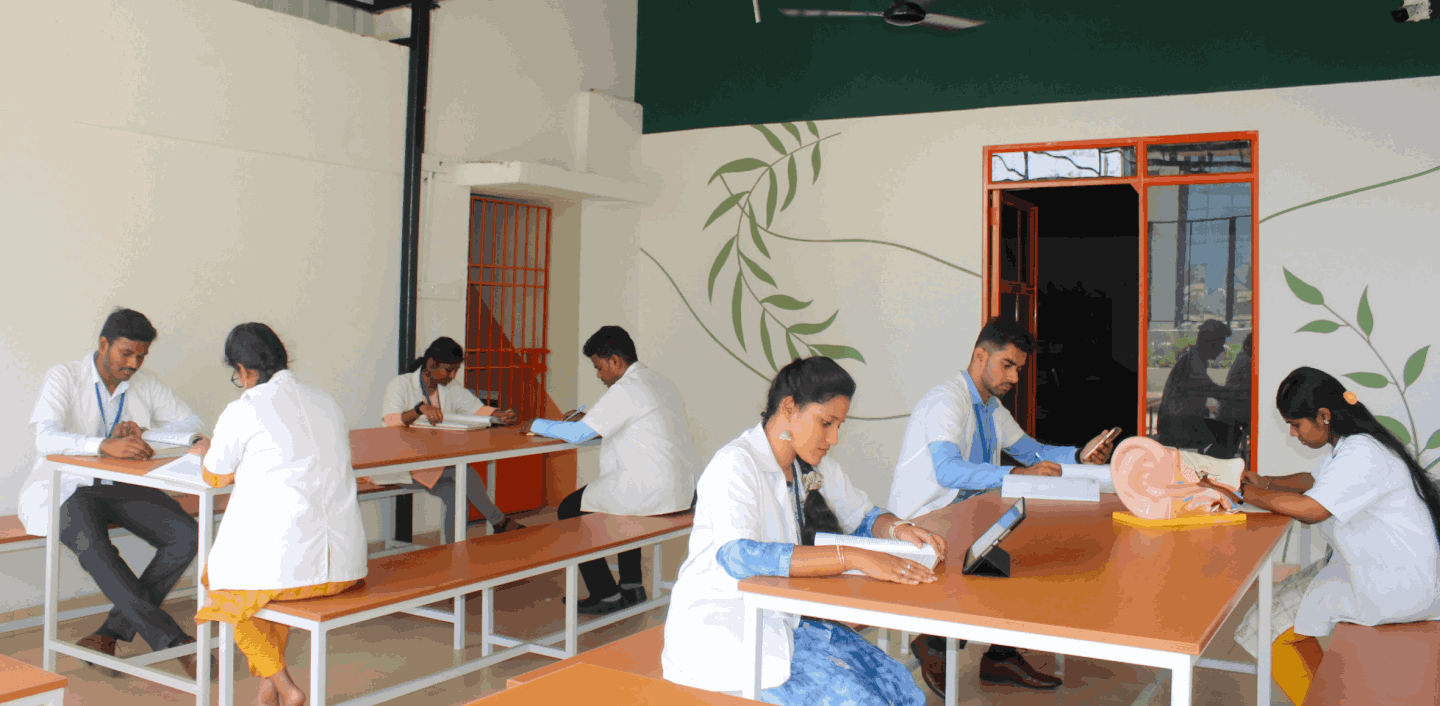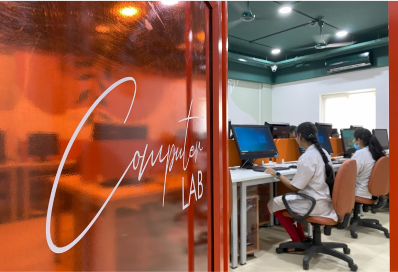Course
Ph.D Speech – Language Pathology
(Ph.D SLP)
Apply NowPh.D. Speech-Language Pathology, also known as Doctor of Philosophy in Speech-Language Pathology, is a type of doctorate course. A Ph.D. program focuses on developing an area of research expertise and prepares a person for a career as a professor, researcher, or administrator—often in an academic setting. Candidates work meticulously with a mentor in a specific research area while still earning a broad, scientific education in speech-language pathology. The program targets increasing the quality and quantity of research in speech and language disorders.
Merfish's Ph.D. in speech-language pathology is a highly regarded program in India. It offers a comprehensive curriculum and cutting-edge facilities to equip students with advanced knowledge and skills in the field of speech-language pathology.
Ph.D. in Speech Language Pathology program Eligibility for admission
- Candidates should have passed the M.Sc. (SLP)/M.Sc. (Sp. & Hg.)/MASLP degree examination with a minimum of 55% (50% in the case of SC/ST) marks.
- Individuals with a Ph.D. have a multitude of career opportunities, including teaching and carrying out research at a university; writing scholarly articles and presenting research at conferences; developing clinical research programs; and directing rehabilitation programs
Ph.D. in Speech Language Pathology program Eligibility for admission
Candidates should have passed the M.Sc. (Aud)/M.Sc. (Sp. & Hg.)/MASLP degree examination with
a minimum of 55% (50% in the case of SC/ST) marks.
The candidate must pass the common entrance exam that the university administers for the
course.
Top PhD Programs in Speech-Language Pathology at Merfish Institute
Why Choose Merfish Institute for Your PhD in Speech-Language Pathology?
Merfish Institute offers a world-class PhD program in Speech-Language Pathology that provides students with the knowledge and skills to become leaders in the field. Our program is distinguished by:
- Renowned Faculty: Learn from internationally recognized experts in speech-language pathology.
- Cutting-Edge Research: Engage in groundbreaking research that addresses critical issues in the field.
- Advanced Training: Receive advanced training in a variety of areas, including assessment, intervention, and research methods.
- State-of-the-Art Facilities: Utilize our state-of-the-art facilities to conduct research and provide clinical services.
Career Opportunities for PhD Graduates in Speech-Language Pathology
A PhD in Speech-Language Pathology opens doors to a wide range of exciting career opportunities, including:
- University Professor: Teach and conduct research at a university or college.
- Clinical Researcher: Conduct research to advance the field of speech-language pathology.
- Clinical Specialist: Provide specialized clinical services to individuals with complex communication disorders.
- Healthcare Administrator: Manage healthcare organizations and programs.
Admission Requirements and Process
- Master's Degree: A master's degree in speech-language pathology or a related field.
Contact Information and Inquiries
For more information about our PhD program or to inquire about the application process, please contact:
+91- 8056284543
Benefits of Pursuing a PhD in Speech-Language Pathology
A PhD in Speech-Language Pathology offers numerous benefits, including:
- Advanced Knowledge and Skills: Develop a deep understanding of complex communication disorders.
- Career Advancement:Advance your career and increase your earning potential.
Clinical Training Opportunities
Our program offers a variety of clinical training opportunities, including:
- On-campus clinics: Gain hands-on experience working with clients with a range of communication disorders.
- Off-campus placements:Complete clinical rotations at local hospitals, schools, and rehabilitation centers.
FAQs
1. What is the difference between the SLPD and the PhD?
The SLPD does not provide researchers with the same training as the PhD. Unlike a PhD, the SLPD prepares you to assess and apply advanced leadership, business and practice management, and clinical science to real-world problems in a practice specialisation area. The SLPD program is speedier than the PhD and allows students to work while they study.
Our department provides both PhD and SLPD degrees. Learn about PhD programs
2.What are the career options with a Ph.D. in Speech-Language Pathology?
A Ph.D. in SLP prepares you for careers focused on research and academia. You could become a university professor, researcher, develop clinical research programs, direct rehabilitation programs, write scholarly articles, and present your research at conferences.
3. What are the eligibility requirements for the Ph.D. program?
To be eligible, you typically need a Master's degree (M.Sc. (SLP), M.Sc. (Sp. & Hg.), or MASLP) in Speech-Language Pathology with a minimum GPA (often 55%, potentially lower for SC/ST candidates). Additionally, you might need to pass an entrance exam specific to the university you're applying to.
4.What is the focus of a Ph.D. program in SLP compared to a Master's?
While a Master's degree qualifies you for clinical practice as a speech-language pathologist, a Ph.D. program goes beyond that. It delves deeper into research, aiming to increase knowledge and refine interventions for speech and language disorders. You'll work closely with a mentor on a specific research area while gaining a broader scientific background in SLP.
5. How long does a Ph.D. program in SLP typically last?
The program duration mentioned is typically around 4 years. However, this timeframe can vary depending on the university and your individual progress.



